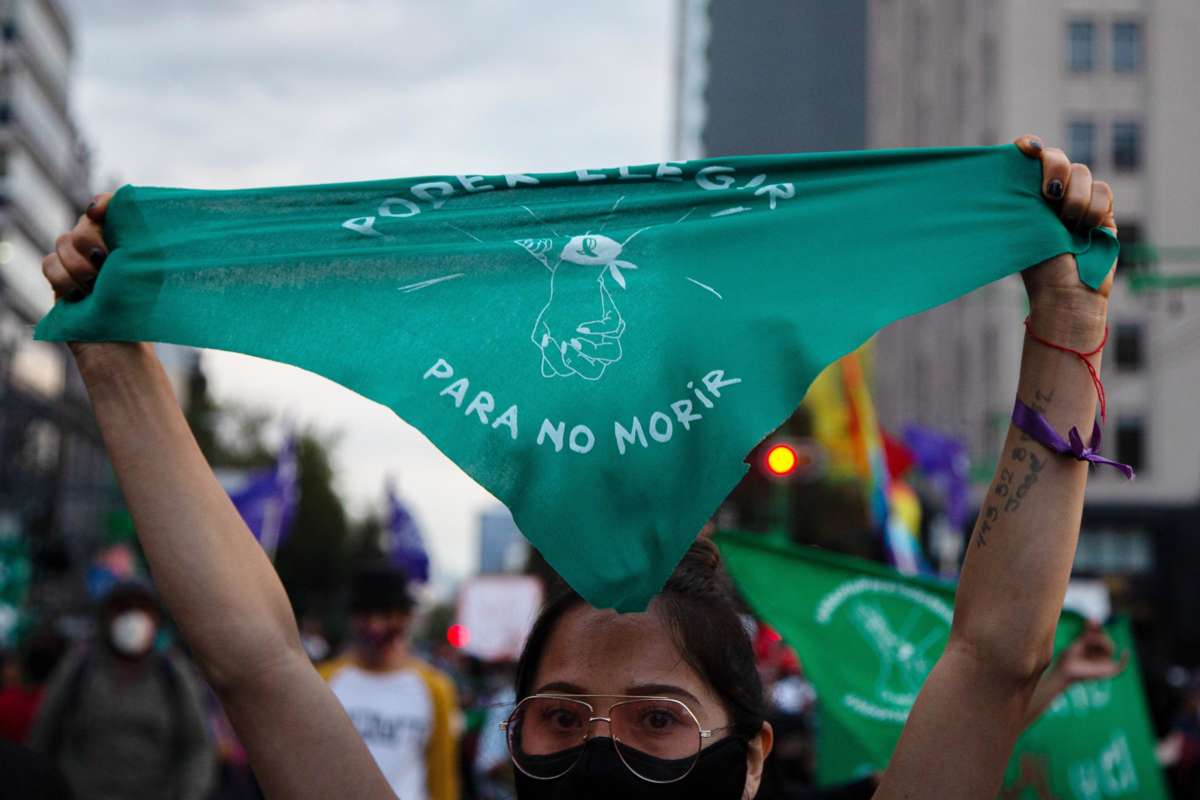Support justice-driven, accurate and transparent news — make a quick donation to Truthout today!
A unanimous opinion from Mexico’s supreme court has found that laws in the country that impose prison sentences on individuals for attaining an abortion are inconsistent with the country’s constitution, a ruling that effectively decriminalizes the practice throughout the nation.
Although the practice won’t be immediately legalized in the 28 states that currently have laws criminalizing it, an “outline” on how those states will have to update those laws or how judges within them will have to rule on future cases will likely come about soon, former supreme court justice Diego Valadés said.
Just four federal zones in Mexico — Oaxaca, Veracruz, Hidalgo and Mexico City — had recognized abortion rights prior to Tuesday’s ruling.
The justices issued a 10-0 decision in favor of removing criminal sanctions for abortion in the northern state of Coahuila, where a person could be imprisoned for up to three years for getting an abortion.
Under Mexican law, any supreme court ruling that includes more than eight justices siding with a decision can be applied to the rest of the country as well. Since 10 justices ruled in favor of the decision decriminalizing abortion, it will create “obligatory criteria for all of the country’s judges” beyond Coahuila to rule on similar cases throughout the country, said court President Arturo Zaldívar.
Women’s rights proponents praised the ruling as moving Mexico and other Latin American countries forward.
“This will not only have an impact in Mexico; it will set the agenda for the entire Latin American region,” said Melissa Ayala, litigation coordinator at GIRE, a Mexican feminist organization.
The ruling comes as a movement for women’s rights is growing in the country, with women frequently taking to the streets to demand greater political rights and recognized freedoms.
It also comes just days after Texas, which is directly across the U.S.-Mexico border from Coahuila, enacted new, harsher restrictions on abortions, forbidding the practice by allowing anyone to sue for up to $10,000 any abortion care provider or any individual who helps a person obtain an abortion after six weeks of pregnancy.
The United States Supreme Court, by a 5-4 decision, refused to place a hold on the Texas law, with conservative bloc justices apparently siding with anti-abortion lawmakers in the Lone Star State. The court’s conservative majority sidled out of making a decision by saying that an aggrieved party being sued under the law would have to bring a countersuit in order for the court to consider the issue of the law’s constitutionality.
Holding Trump accountable for his illegal war on Iran
The devastating American and Israeli attacks have killed hundreds of Iranians, and the death toll continues to rise.
As independent media, what we do next matters a lot. It’s up to us to report the truth, demand accountability, and reckon with the consequences of U.S. militarism at this cataclysmic historical moment.
Trump may be an authoritarian, but he is not entirely invulnerable, nor are the elected officials who have given him pass after pass. We cannot let him believe for a second longer that he can get away with something this wildly illegal or recklessly dangerous without accountability.
We ask for your support as we carry out our media resistance to unchecked militarism. Please make a tax-deductible one-time or monthly donation to Truthout.
